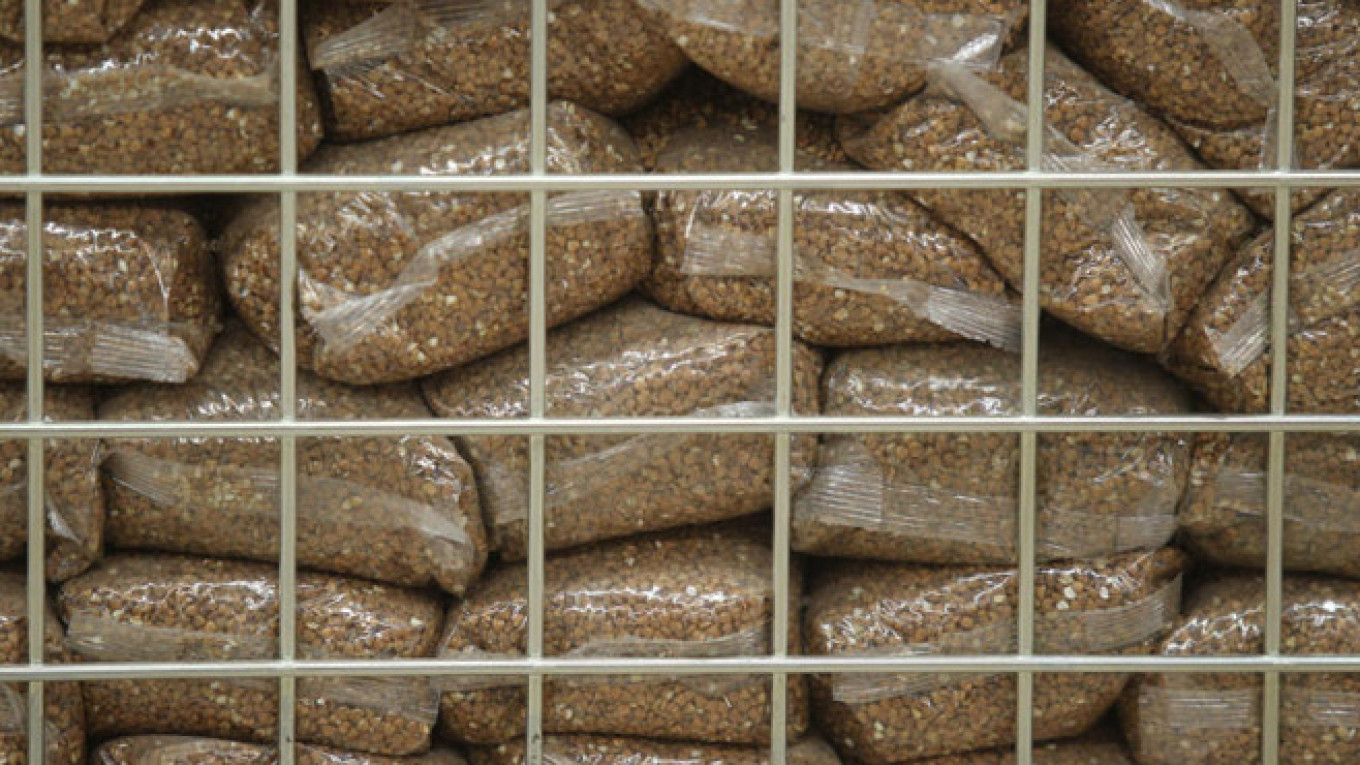Following the news of a bad buckwheat harvest, panic buying of the traditional foodstuff sent prices soaring in a sign that some analysts say is likely linked to economic anxieties, not harvest yields.
The run on buckwheat "indicates people's expectations of an upcoming economic crisis, to which consumers are always keenly attuned," said Natalia Kolupaeva, a retail analyst at Raiffeisenbank.
Prices for buckwheat started to grow at the end of October on reports of a bad harvest in the Altai region in Siberia, which produces about 40 percent of the buckwheat in Russia.
News of the bad harvest spread like wildfire, causing consumers to panic even in regions hundreds of kilometers away from Siberia. Several large retail chains reported that customers were buying out stocks of buckwheat as soon as they appeared on the shelf.
Since then, the average wholesale price of buckwheat has spiraled up to about 45 rubles (96 cents) per kilogram, with prices growing by up to 80 percent in some regions, according to news agency RIA Novosti.
State statistics service Rosstat reported Wednesday that prices for buckwheat grew by 27.5 percent on average since the beginning of November. ?
But analysts said there is no logical basis for double-digit price hikes.
Russia is expected to produce over 700,000 tons of buckwheat this year, more than enough to meet the annual demand, which is about 650,000 tons.
"The growth of price [for buckwheat] is noneconomic, so when things cool down prices should drop by about 30 percent," Vladimir Petrichenko, the head of ProZerno analytical center, was quoted by news agency TASS as saying on Wednesday.
"This is just hysteria cased by the poor harvest in the Altai region," he added.
Buckwheat certainly holds an honored role on Russian plates. Considered healthy and nutritious, it has been widely prepared since tsarist times as both as a side dish and as the main course. After China, Russia is the world's second largest buckwheat producer and most of the harvest is consumed within the country.
Still, with just over five kilograms of buckwheat consumed on average per person in Russia annually, it can hardly be considered a staple food in today's Russia.
But Raiffeisenbank's Kolupaeva said that the rush to buy buckwheat has less to do with consumption levels and more to do with Russia's high inflation, which has risen past 8 percent this year.
When inflation shows signs of outpacing pension and salary growth, the public tends to stock up on what they see as strategic reserves, according to Kolupaeva. Based on buying trends, buckwheat is historically considered just that.
At the same time, prices have grown not just for buckwheat but for other food categories, albeit for reasons other than rumors of shortages.
The food ban Russia imposed in retaliation to Western sanctions over Russia's role in the Ukraine crisis, combined with the falling ruble, has resulted in growing retail prices across all categories. According to Rosstat, food inflation in Russia in October was 11.5 percent higher that in the same period last year.
"We assume that prices for pasta will go up as well as the prices for grain wheat have grown by almost 70 percent since October," said Andrei Dribny, the head of Extra-M, one of Russia's largest pasta producers.
Kolupaeva has already noted a part of this growing trend.
"Some retailers have reintroduced a long-forgotten practice of selling grain and pasta by weight as it comes cheaper this way and is sold well," she said.
Contact the author at [email protected]
A Message from The Moscow Times:
Dear readers,
We are facing unprecedented challenges. Russia's Prosecutor General's Office has designated The Moscow Times as an "undesirable" organization, criminalizing our work and putting our staff at risk of prosecution. This follows our earlier unjust labeling as a "foreign agent."
These actions are direct attempts to silence independent journalism in Russia. The authorities claim our work "discredits the decisions of the Russian leadership." We see things differently: we strive to provide accurate, unbiased reporting on Russia.
We, the journalists of The Moscow Times, refuse to be silenced. But to continue our work, we need your help.
Your support, no matter how small, makes a world of difference. If you can, please support us monthly starting from just $2. It's quick to set up, and every contribution makes a significant impact.
By supporting The Moscow Times, you're defending open, independent journalism in the face of repression. Thank you for standing with us.
Remind me later.


